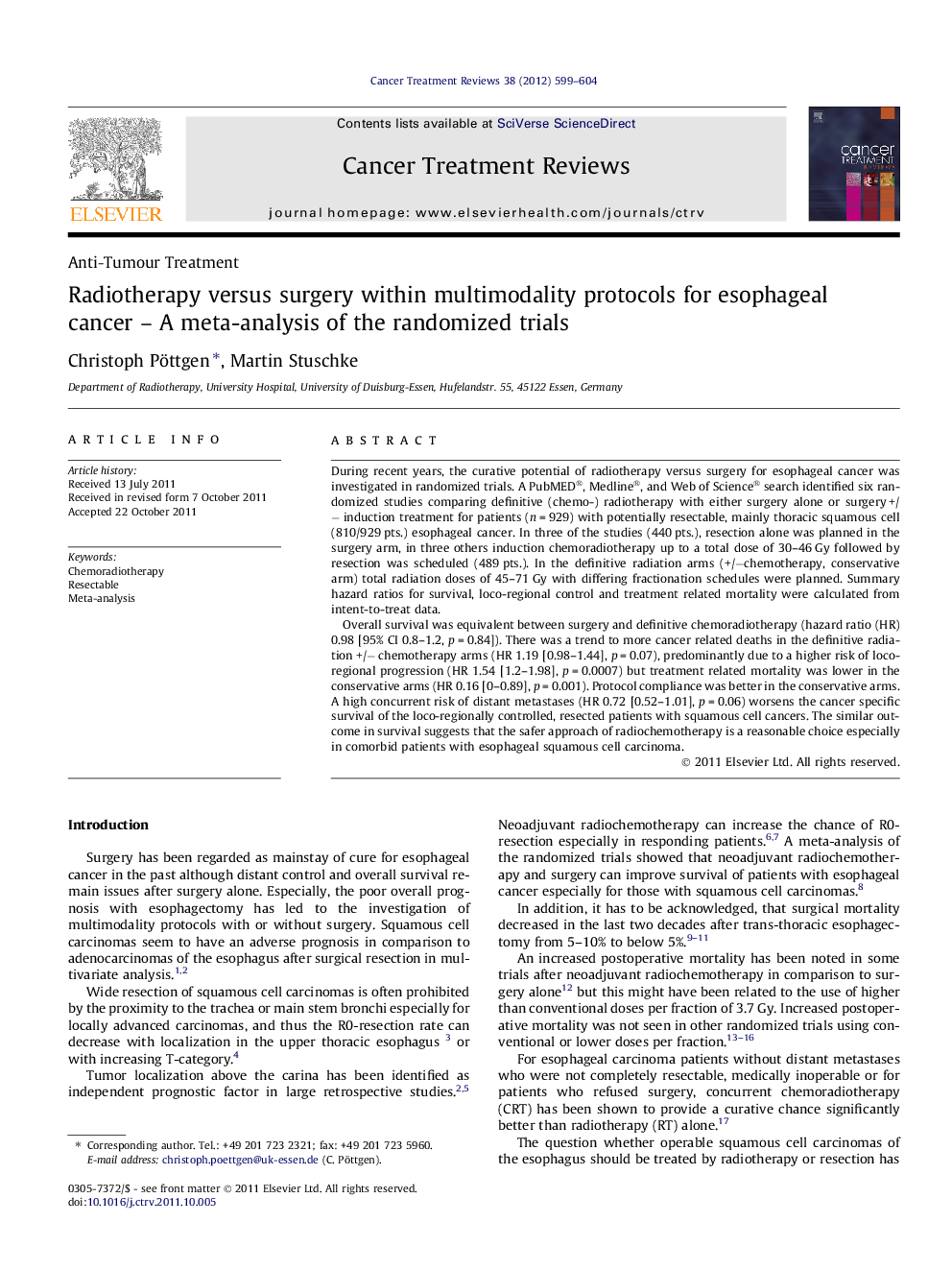| Article ID | Journal | Published Year | Pages | File Type |
|---|---|---|---|---|
| 3979924 | Cancer Treatment Reviews | 2012 | 6 Pages |
During recent years, the curative potential of radiotherapy versus surgery for esophageal cancer was investigated in randomized trials. A PubMED®, Medline®, and Web of Science® search identified six randomized studies comparing definitive (chemo-) radiotherapy with either surgery alone or surgery +/− induction treatment for patients (n = 929) with potentially resectable, mainly thoracic squamous cell (810/929 pts.) esophageal cancer. In three of the studies (440 pts.), resection alone was planned in the surgery arm, in three others induction chemoradiotherapy up to a total dose of 30–46 Gy followed by resection was scheduled (489 pts.). In the definitive radiation arms (+/−chemotherapy, conservative arm) total radiation doses of 45–71 Gy with differing fractionation schedules were planned. Summary hazard ratios for survival, loco-regional control and treatment related mortality were calculated from intent-to-treat data.Overall survival was equivalent between surgery and definitive chemoradiotherapy (hazard ratio (HR) 0.98 [95% CI 0.8–1.2, p = 0.84]). There was a trend to more cancer related deaths in the definitive radiation +/− chemotherapy arms (HR 1.19 [0.98–1.44], p = 0.07), predominantly due to a higher risk of loco-regional progression (HR 1.54 [1.2–1.98], p = 0.0007) but treatment related mortality was lower in the conservative arms (HR 0.16 [0–0.89], p = 0.001). Protocol compliance was better in the conservative arms. A high concurrent risk of distant metastases (HR 0.72 [0.52–1.01], p = 0.06) worsens the cancer specific survival of the loco-regionally controlled, resected patients with squamous cell cancers. The similar outcome in survival suggests that the safer approach of radiochemotherapy is a reasonable choice especially in comorbid patients with esophageal squamous cell carcinoma.
